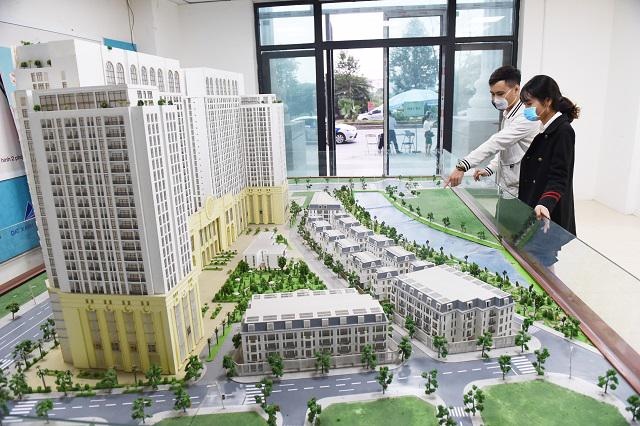Vietnam c.bank to continue tightening credit into real estate
Vietnam c.bank to continue tightening credit into real estate
Total outstanding loans from banks in the real estate market were estimated at over VND2,280 trillion (US$98.32 billion), up 10.19% against late 2021.
The State Bank of Vietnam (SBV) would continue to tighten credit in risky fields, including the real estate and stock market, according to the central bank’s Governor Nguyen Thi Hong.

Investors look at a real estate project in Hanoi. Photo: Pham Hung |
In a report submitted to the National Assembly, Hong noted an estimated 94% of the outstanding loans in the real estate sector are of mid-and long-term lending, but those mobilized from the bank are short-term.
“Differences in the maturity period and interest rates of the financing sources mean loans in this field are of high risk to the banking sector,” said Hong, while calling for strict measures to supervise the capital inflow.
Such a trend has been made worse given the high volatile nature of the real estate market and acts of price manipulation. “All of these factors have caused difficulties for credit institutions to assess the mortgage,” she said.
Data from the SBV revealed as of late April, total outstanding bank loans in the real estate market were estimated at over VND2,280 trillion (US$98.32 billion), up 10.19% against late 2021.
Such a figure accounted for 20.44% of the total outstanding loans in the economy, with a bad debt rate in the field of 1.62%.
“The SBV is closely monitoring the credit growth and quality in fields of real estate and stock market to timely intervene, if needed, for the safety of the banking sector,” Hong said.
As of May 31, Vietnam’s credit growth expanded by 8.04% compared to late of 2021, and 16.94% year-on-year.
Hong attributed the high credit growth to the slow disbursement rate of public investment fund, and the majority of capital needed for economic recovery is coming from banks’ credit.




















